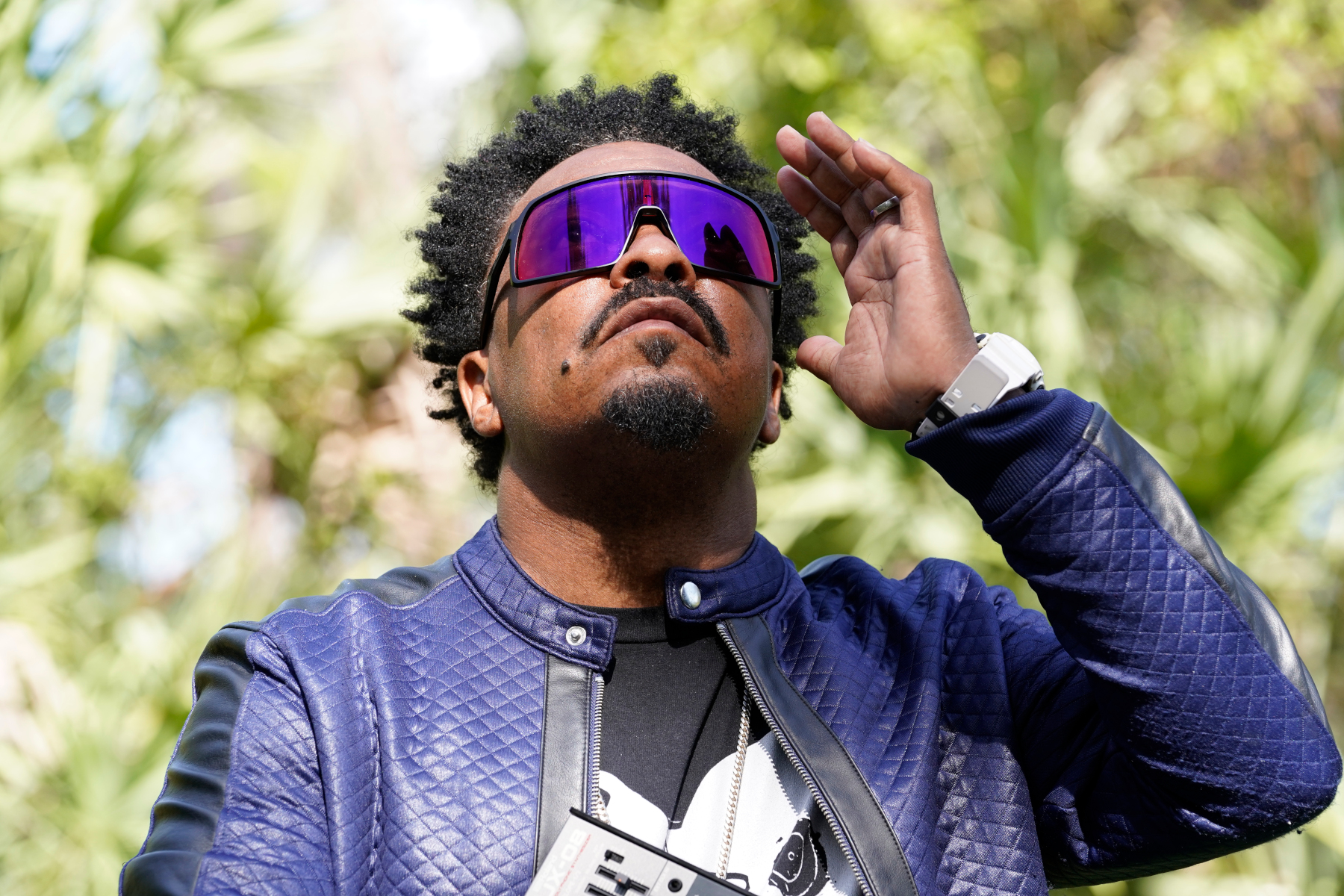Photo: Press (Roy Davis Jr.)
Roy Davis Jr. has shaped house music like barely any other figure on the scene, not only as an early adopter of the sound in Chicago in the late 1980s, but also as a prolific producer who made a name for himself as a solo artist as well as in a slew of groups that included Phuture and a label co-owner of Undaground Therapy Muzik and A&R for the legendary Strictly Rhythm. Nowadays, he is more conscious about he spends his time, he assures us, but that doesn’t mean he’s slowing down. Having revived the label, he turned it into a hub in which seminal classics rub shoulders with productions by up and coming artists. Roy Davis Jr.’s contribution to our Groove Podcast similarly blends tradition with modernity. This is 80 minutes of 100 % house music, good vibes only.
You have been diagnosed with multiple sclerosis in 2016. How has it affected your life and work since then?
Well, it’s been a huge change in how I work today, I do less shows because it’s rougher on my body after the MS diagnosis. Things just have to make sense for me to give it my time now, too much traveling can be a bit stressful. But I try to keep things going more on the remix side or music production instead of living on the road, so I pick and choose what’s worth it for me.
However, after barely playing shows in the first few years of the pandemic, you have toured a bit more this year. How has the experience been for you?
It’s been good shows and great moments, but the energy still feels like everyone is waiting for another pandemic to hit, if you know what I mean—not in a conspiracy theorist way, but some people are still in shock that they are out and about, trying to enjoy the time we do all have together, which can be good.
As a producer, you have become more active in recent years, too. What role does making music play in your life right now?
The creative roll takes up 50 % of my days now, instead 90 % like it used to. My health and family gets most of my time these days. I used to be a super workaholic! (laughs) … I lived life without sleeping, which is totally the wrong way to work. Now, I work less, but smarter, and I also learned how to value my time better.
Your recent productions are hardware-based and you also use acoustic instruments. What instruments are most crucial to your workflow and how would you characterize your writing process?
My writing process changes all the time, for me the Akai MPC Live and the Roland Jupiter XM and my Moog Grand Mother are playing a major roll in how I create these days, but if I’m in the DAW it can be Logic, Reasons or Ableton. Today’s capabilities seem almost endless in what you can do how everything can work within each other.
You also revived your Undaground Therapy Muzik label this year. What prompted you to do so?
Well, throughout the years I always knew I would bring the label back to full force, but it takes time and a good team to work with. After [label co-founder] Odell Braziel slowed down, I found great partners and am working with such companies such as AD Music Group. People like Henry Moller and Lenny Legaspi help me keep the ship in order.
One of the releases was a reissue of “Watch Them Come,” the 1999 Men From The Nile—a collaboration with Jay Juniel—classic featuring Peven Everett. What does this particular mean to you, what does it represent in your back catalogue?
It represents a great time for the label and longevity how our house was built.
Besides reissuing the Jazzanova, Derrick Carter and DJ Pierre remixes along with the original track, you’ve also invited old friends such as Green Velvet, Soul Clap, and Matt N Ricky to contribute new ones. Why was that important to you?
It was important because I had so many remixes sitting around unheard and I wanted all of you to hear these different takes on the record for today’s time!
Apart from that, you have released new music by younger artists such as Turquoise Colored French Tourists Pitch Deck or Al Zanders through Undaground Therapy Muzik in recent times. How would you describe the philosophy which you follow with the imprint these days?
Don’t be afraid to venture off into new sounds that carry integrity and always embrace the talent when you hear it, not because it carries the huge name—everyone has to start somewhere! So why can’t it be under my Undaground Therapy Muzik umbrella? I really take pride in continuing to build equity and equality with the label as well as the legacy of the company to see how far can it be stretched. That’s very important to me.
What was the idea behind your mix for our Groove podcast?
Well, with this mix it’s just a small dip into the soul and mind of Roy Jr. Let’s keep these good vibes rolling and the world turning to these rhythms.
Last but not least: what are your plans for the future?
I stopped trying to reveal my future plans in the public eyes these days, for one does not know what tomorrow shall bring. So keep looking for me!
Stream: Roy Davis Jr. – Groove Podcast 403
No tracklist available.
